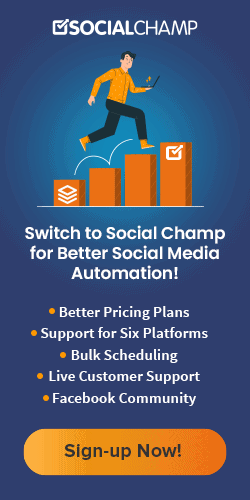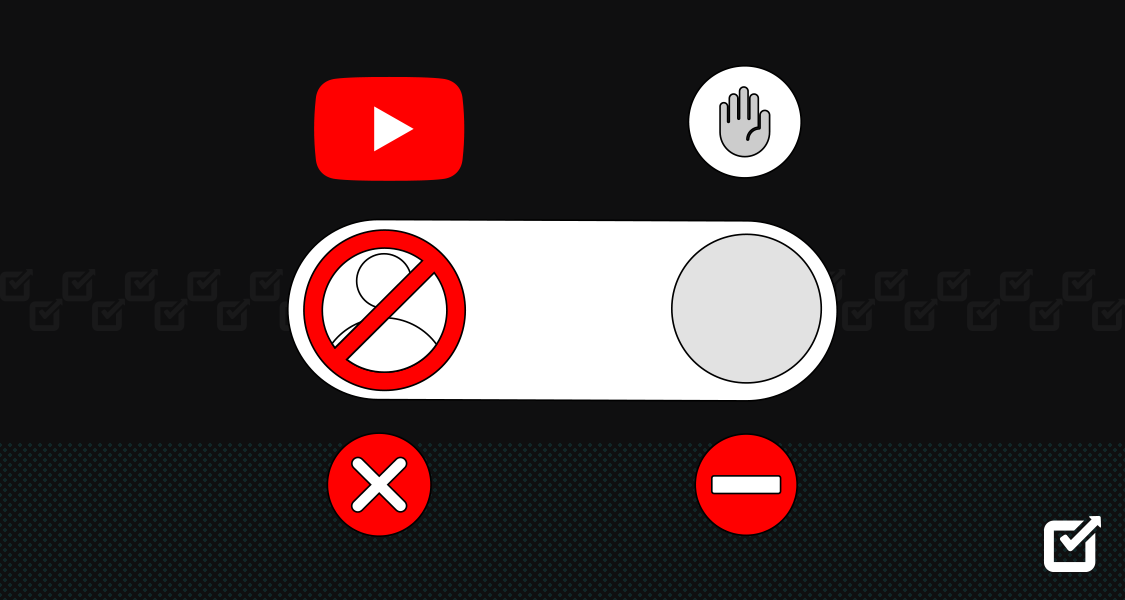Digital marketing is a risky business; you never know when something might go wrong. Similarly, you can never be sure of what might go viral. However, one thing is always expected in digital marketing. No matter what happens, you need to keep your audience first.
So what exactly should be your game plan? Is it better to target feature-centric marketing or experience-centric marketing? What should the majority of your blogs focus on? If you are at a crossroads about what you need to do, let us help you!
We asked some industry experts about their opinion, and here is what they all think!
Expert Opinion on Experience Centric vs Product Centric Marketing
Susan Melony
Founder at Product Diggers
Experience-centered
When it comes to blogging, we believe in experience-centered marketing, to simplify we write about how a particular service or product affects us instead of talking about its technical aspects of it. Buyers can easily look up technical details online on any website; however, the user experience factor is missing. This is where we come in; we dig out the best products in the market, test them and tell our readers what to expect. This sort of blogging makes it accessible to everyone regardless of their technical knowledge.
Features-centered
On the other hand, features-centered blogging is more suitable for informed audiences who understand the difference between RAM and ROM. It is much more formal and to-the-point, making it a good read for people skimming through your website for technical details and comparisons.
However, our style at Product Diggers is more experience-centered and that is what works for us!
——————–
Maya Rotenberg
VP of Marketing at Stoke Talent
Of course, it depends on the product or service and your market. However, I am in favor of experience-centric
marketing because it takes the humanistic approach rather than trying to sell for the sake of selling merely.
Experience-centered marketing also helps build a stronger brand, solidifies your company values, and may even encourage creativity among your customers more than features-centered marketing. It lets them see interactions with your products or services and encourages them to envision these for themselves.
——————–
Gerrid Smith
CEO and Founder at Property Tax Loans Pro
Experiential marketing is effective because it deviates from the norm. It’s not as simple as skipping commercials on your DVR or skipping adverts in your magazine. People want to interact with interactive marketing, which is distinct from ads. There are numerous examples of experiential marketing in this article.
A Netflix pop-up exhibition is one of them. It’s not simply an event that people want to attend; they also don’t want to miss it. What more could a marketer want? I truly believe that marketing does not have to be boring, whether you’re doing B2C or B2B marketing. That’s a lie; it shouldn’t be dull! Experiential marketing is the best way to break up with dull campaigns. Breaking free from the mundane necessitates a certain amount of risk-taking.
Yes, this can be frightening, especially when a large budget is at play, as is frequently the case with this method.
However, as writer and researcher Evgeny Morozov put it in one of my favourite marketing statements, Creative innovation moves our civilization forward. We tend to praise breakthroughs and leave out all the experimental errors in our stories about inventions, which doesn’t mean that mistakes are unimportant. Innovation would end without some protected, even hallowed area for mistakes, as any artist or scientist knows”.
The adage no risk, no reward applies to both personal and professional life. You’re just white noise if you perform the same thing as your competition. Including a dash of colour in your approach, even if it isn’t always the appropriate color, is the only way to take your brand to the next level.
It’s also where the excitement of experiential marketing comes into play. Social media, publicity, improved brand affinity, and creating buzz around your company are all advantages of experiential marketing.
——————–
Marc Tonkin
Professional Travel Blogger and Digital Marketer at JTG Travel
Features-Centric Marketing
A features-centric business focuses only on the product. It creates newer and more sophisticated goods regardless of market need, and all strategies and corporate processes revolve around the product and function appropriately. These businesses spend a lot of money on R&D to create sophisticated goods, and they grow by adding additional product lines to their portfolio. Features-centric businesses do not operate on the premise of addressing the demands and problems of their customers. They work on the premise of providing a product that consumers have not yet recognized they need.
Experience-Centric Marketing
An experience-centric business prioritizes the consumer in all of its initiatives. They discover their clients’ requirements, problems, and pain spots before developing a solution to offer them. They also have a thorough knowledge of the consumer groups to whom they would sell their goods. Experience-centric businesses explain the whole customer journey for a better customer experience and focus on the solution they provide. They are focused on increasing client loyalty and, as a result, expanding their company. Experience-centric businesses depend on repeat customers to generate income and strive to maximize their recurring revenues, and they provide more than simply excellent assistance and service. And in my experience, to assist their clients in achieving their business goals, they invest in customer success, which is rapidly becoming a new industry and science in the SaaS sector.
There are pros and cons of both approaches, but I personally believe that the experience-centric marketing approach is better and is supported by my extensive digital marketing experience.
——————–
Karl Hughes
CEO at Draft.dev
What works best with experience-centered marketing is personalization in the strategy.
Personalized marketing is the best way to approach experience-centered marketing because you’re trying to show your consumers why your product or service will benefit them on a personal level. Gathering data on your retained customers is essential to learning the insights you need to personalize your marketing strategies.
——————–
Chris Campbell
Founder at Review Trackers
Experience marketing is the process of putting the customer at the center of your company’s marketing strategy. It drives usage and adoption of your products and services all in the cause of fulfilling customer needs.
The way customers discover and interact with brands has evolved. Your marketing strategy should also start to reflect these changes.
Consumers are obviously the driving force behind the wired populace that seeks more options, greater convenience, better interactions, and greater brand authenticity via their online experiencer. Customers use online reviews as a form of social proof in order to validate their purchasing decisions. Customers trust reviews to guide their purchasing decisions and trust a brand because of good reviews and ratings.
Popularity, where a group of random people loves the experience they have with your brand, will authentically become your biggest promoter. If you delight your customers, they will recommend you to their friends, family, and colleagues.
Over time, this leads to long-term benefits for your company: greater brand loyalty, improved customer retention, and an increase in bottom-line revenue.
——————–
Erica Tan
Co-Founder at Best in Singapore
Experience-centered marketing works best as it can hit the right spot in the customer. When a customer makes a buying decision, they are more concerned with the kind of experience they will derive from that particular product or service instead of the features. Ideally, features will lead to the experience, i.e., experience is the goal of the features. Therefore, more focus should be laid on experience-centered marketing.
——————–
Stephen Curry
CEO at CocoSign
Products designed to reflect the technology and irrelevant designs fail to affect the day-to-day experience of the people who use it. Features may seem appealing at first glance but have never been desired by the average customer.
However, an experience-oriented design puts the focus on what must be built to have the most impact on the experience of the people who use the product. By prioritizing customers and achieving expectations across all marketing channels, marketers deliver a unique customer experience that retains customers and builds trust.
——————–
Jon Torres
Founder at Jon Torres Marketing
The experience approach is the go-to approach for promoting services, while a features-centered strategy is ideal for highlighting a product’s strengths. Yet each method is suitable for a different purpose and audience as well. Suppose you are promoting software to engineers. It will make little sense if you don’t speak the language they understand, features, and specifications.
If you target consumers, they are less likely to be interested in how your product works and more likely to be interested in how it makes them feel. However, if you are selling high-ticket items, you’ll want to leverage both approaches. Buyers here want to hear about the exceptional experience and the standout features that make the product truly remarkable.
——————–
Hilda Wong
Founder at Content.dog
Feature-oriented marketing highlights the benefits of the product so that it wins over consumers. On the other hand, experiment-centric is a strategy and a culture of doing business that focuses on creating the best experience for the customer, and by doing so builds brand loyalty. It focuses on creating a status symbol or an experience for the customers.
Experience-centric marketing has been swept out of the market as people today seek experience over features and exclusivity in a product. A majority of the leading brands are currently performing an exclusive marketing process. People want to belong to something special and be a part of a group not shared by everyone and that is why experience-based marketing is a great marketing strategy.
——————–
Khris Steven
Owner and Content Marketer at Khris Digital
Experience-centered marketing is a strategy is in relation to a product that provides a customer with a memorable and exciting experience when consuming or using that product.
Many brands use this type of marketing strategy. One of the most notable example is Coca-Cola, which has created its own theme park across the world because it believes that people who visit attractions will associate those memories with their products.
But Coca-Cola is not the only company to have employed this strategy. CoverGirl had a Maskcara Makeup Artist to work on some of their beauty ambassadors while Estee Lauder has created an entire line of fragrances that are designed for specific moments in life, such as First Date and Beach Party.
The use of this strategy makes companies create memorable experiences for people associated with their products.
In addition to offering unique experiences, companies also implement interactive marketing strategies so they can reach more customers through social media.
This involves letting potential customers register or sign up on social media platforms so they can access exclusive offers from the company and communicate directly with them.
This type of marketing method is very popular because it promotes transparency between the company and their customers.
Furthermore, it allows companies to see where most of their consumers are spending time online so they can post content accordingly.
These types of marketing strategies enhance the customer experience not only because they allow people to show appreciation for a good product but also because these experiences increase brand awareness.
For these reasons (and many more) the experience-centered marketing strategy is far better and works best than the features-centered marketing as it focuses on the experiences, feelings, and emotions of the customer rather than the features of the product.
——————–
Kristoffer Howes
Principal Investigator at G2M Research
Experience-centered (experiential) marketing is more effective than a featured-centered approach.
When something is experiential, it involves or is based upon observations (seeing) and experiences (feeling). Experiential marketing is the marketing of a product or a service through experiences that engage the consumer in as many ways as possible. In doing so, experiential content creates or encourages the recall of memories that forge an emotional attachment to the marketing message, inspire empathy, and create a memorable experience for consumers. This results in a deeply personal understanding and appreciation for the marketing message.
——————–
Mark Whitman
Founder at Contentellect
I would say that feature-centered marketing is incredibly effective. A prime example of the success of this method is the Apple brand.
They have built a monumentally loyal customer base who are slaves to the brand. Whenever Apple releases a new product with new features, the number of sales is astronomical. They have also been smart in connecting all devices and bringing products that are all interconnected to the market.
——————–
Nicholas Vasiliou
CEO at Bio Health Nutrition
There is so much content thrown at consumers all the time. That’s why experiential marketing is really great; consumers are more likely to remember – and talk about – an experience versus a piece of content. The opportunity to connect with consumers on a deeper level is more likely through experiences. That said, it’s highly unlikely to use experiential marketing only; you need to balance it with features-centered content. The key to both is really establishing what your consumer needs and providing them content or an experience that’s smooth and helpful.
——————–
Ryan Brown
Integrated Marketing Director at Kenra Professional
There is a time and a place for both experience-centered and feature-centered marketing. What’s important is knowing your customer, understanding their journey, and messaging them the right way at the right time. It requires a mindful approach to understand when and why messages should be delivered in a certain way. There can be a time and place for experiential initiatives, but it’s not always needed to deliver a straightforward message with a clear call to action. Relying on only one type of marketing is generally not ideal.
——————–
Joseph Bushnell
Founder at Joseph Bushnell Marketing
Both kinds of marketing are highly effective wherever possible, you should combine the two.
For example, I have worked with SaaS companies that use both very effectively. They use feature marketing quite heavily when they add a new feature or update to their software. But they also allow people to experience the product for themselves via a live demo or free trial period.
This one-two marketing punch can acquire customers in droves when done correctly. It’s not just for SaaS companies; most business types can use feature marketing, experience marketing, or both.
——————–
Cary Hastings
Head of Content at Bonsai
Experience-centered marketing is all about putting your customers first. In this type of marketing, you really have to know your customers, their interests, and their problems that need to be solved. Customer feedback, surveys, and interviews will help you get an accurate and deep understanding of your customer profile.
——————–
Daniela Sawyer
Founder at Find People Fast
Experience-centered marketing is all about putting your customers first. In this type of marketing, you really have to know your customers, their interests, and their problems that need to be solved. Customer feedback, surveys, and interviews will help you get an accurate and deep understanding of your customer profile.
——————–
We would like to thank all those who sent in their responses!

































1 thought on “Feature Centric Marketing vs. Experience Centric Marketing”
Superb post! Thanks for sharing this wonderful post.